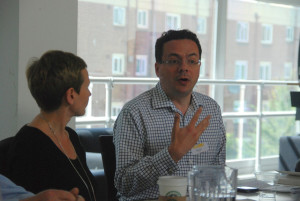Modernising community politics: creating communities
Hello again to a slightly updated version of a piece I wrote in 2011, which is very relevant once again given Tim Farron’s increasing emphasis on applying Community Politics to rebuild the Liberal Democrats.
 At the 2011 Social Liberal Forum conference, I took part in the panel on the Big Society and community politics. Regular readers won’t be surprised about the views I expressed on either of them (see for example here and here), but one point that I’ve not talked about for a while came out in discussion following a very pertinent question from Hackney’s Mark Smulian.
At the 2011 Social Liberal Forum conference, I took part in the panel on the Big Society and community politics. Regular readers won’t be surprised about the views I expressed on either of them (see for example here and here), but one point that I’ve not talked about for a while came out in discussion following a very pertinent question from Hackney’s Mark Smulian.
Mark rightly pointed out that the concept of community in the area where he lives, with a large transient population, was very different from what worked when community politics was first being created. Mark if anything under-sold his point. Not only are populations more changing now, but also it’s increasingly rare for more people from more than one household on a street to work in the same place. Add to that the decline in religious worship and those old foundations for communities – long-standing neighbours, common places of work and common places of worship – are now much weaker than they used to be.
What that means for community politicians in this century is that helping to foster a sense of community often needs to be a far bigger part of the community politics task than it was in the middle of the last century. The jargon of moment, following Robert Putnam’s seminal work, is “social capital” with the idea that you can take positive, practical steps to build social capital which then brings long-term benefits.
It is possible to deliberately set out to foster stronger communities in this way, as I wrote about for the Local Government Information Unit. It’s possible for local councils, for example, to deliberate set about their work in ways that encourages the creation of local social capital. This can be done by requiring developers to put effort into kick-starting residents’ associations on new estates. Or by running council planning processes in a way that makes it easy for those who oppose or support a planning application to contact each other to campaign.
How political activists run election campaigns – whether they are inclusive team builders or not – can even play a part. One of the best things I’ve seen on a campaign trail is the way that the regular and sociable clerical work sessions in Harrogate in the run-up to the 1997 general election not only helped lay the foundations for Phil Willis’s great victory over Norman Lamont, but also fostered new networks of friendship amongst the older helpers who dominated the daytime sessions.
Iain Roberts rightly laid down a challenge to believers in community politics to be aware of its weaknesses. An understanding of how the levers of power can be used to build stronger local communities that then in turn can push those levers for themselves needs to be at the centre of such awareness.
Leave a Reply